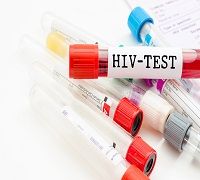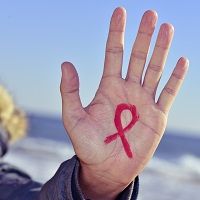Article
ICYMI: The 10 Best Health Stories from February
Author(s):
The MD Magazine editors rounded up the 10 best stories from the past month – did you read them all?

Sometimes there’s just so much news that it’s impossible to digest it all. But have no fear — MD Magazine’s editors selected the 10 best stories from February so you can still be in the know. From monumental surgeries to a new HIV prevention method to a hospital cyberattack, the past month has been anything but boring. Did you read them all?
Don’t forget to stay up-to-date by connecting with us on Facebook, Twitter, Instagram, and LinkedIn!

Harold Fernandez, MD, was just 13 when he and his 11-year-old brother started the journey from a small town in Colombia to the United States. Despite arriving as an undocumented immigrant Fernandez worked his way through some of the best schools in the country to become a top doctor in his field.
>>> Watch the exclusive interview.

The only doctor to ever be convicted of murder for recklessly prescribing drugs in the United States was sentenced today to 30 years to life in prison.
>>> Continue reading this story.

Johns Hopkins University has been granted approval from the United Network for Organ Sharing (UNOS) to be the first hospital in the country to perform HIV-positive to HIV-positive organ transplant — which up until recently was not allowed.
>>> Continue reading this story.

A plastic surgeon and colleagues conducted an investigation in Rome, Italy to uncover what health condition the great artist Michelangelo suffered from — and they believe that they found the answer.
>>> Continue reading this story.

It is well-known that contraception is looked down upon by the Church. But during a multi-national Zika virus outbreak that has been tied to birth defects, even Pope Francis is giving the green light to the use of contraception in certain circumstances.
>>> Continue reading this story.

Hollywood Presbyterian Medical Center in Los Angeles, CA paid nearly $17,000 in bitcoins to get hackers relinquish control of its hospital computer system. The case is the first publicized instance of a hospital victimized by ransomware.
>>> Continue reading this story.

Antibiotics are essential for curing an array of conditions, but they may also be responsible for disrupting cognitive function in patients.
>>> Continue reading this story.

In a finding that could help stop the spread of the human immunodeficiency virus (HIV) — particularly in Africa – researchers found that women who use a vaginal ring containing an antiretroviral drug, such as dapivirine, are about 30% less likely to contract HIV-1.
>>> Continue reading this story.

In a decision on pediatric care that has dismayed autism advocates and some experts, a federal task force has ruled there is not enough evidence to show that screening all US toddlers for autism is a good idea.
>>> Continue reading this story.

The benefits of coffee consumption have long been questioned, but now a new group of experts have given it the thumbs up.


